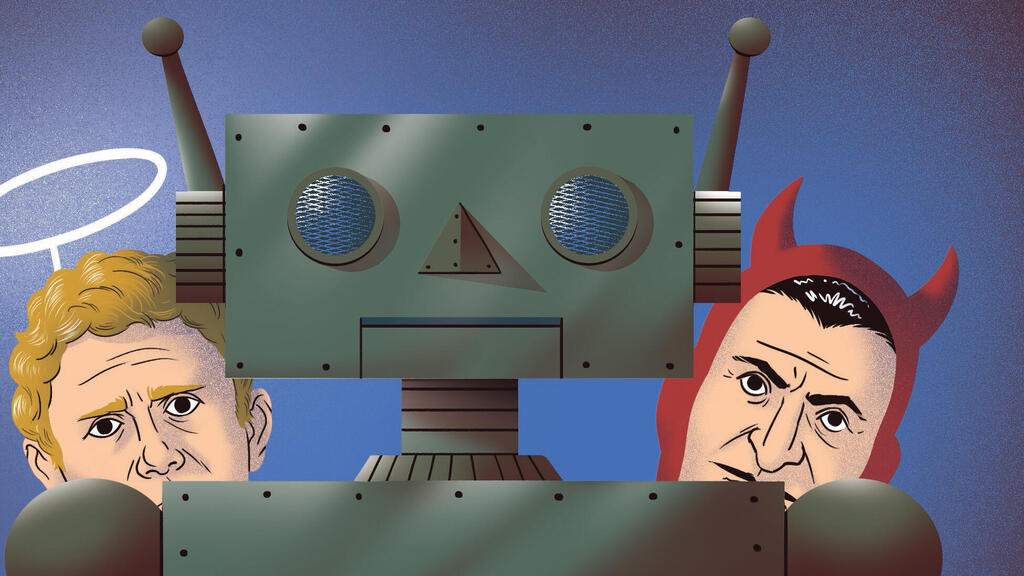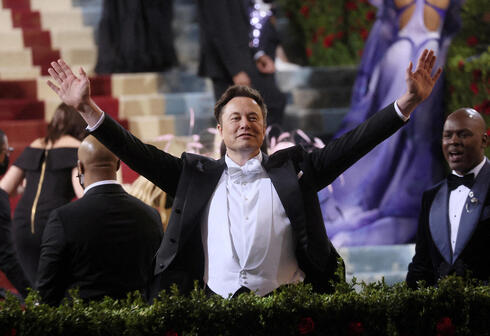
The fast & the spurious: Failures of Tesla, Amazon and Google testify to the motives behind the scenes
Tesla's autonomous driving is causing accidents, Amazon is killing small merchants, and Google's chatbot is wrong. The hasty launches and uncontrolled expansion indicate that it is not "innovation" that drives these companies, but short-term profits
The past weeks have been saturated with news from the technology sector, which at first glance seem unrelated to each other. Among other things, and this is definitely merely a partial list, it was reported that Elon Musk urged Twitter programmers to decipher why his tweets do not receive the same exposure as in the past. Those who tried to explain to him that the general interest in him had diminished were fired, and all the rest were recruited to work harder on the task and changed the algorithm of the social network so that his tweets would be promoted in the general feed.
Then we were informed that the integration of the ChatGPT chatbot into Microsoft's Bing search engine produced so many diverse problems that Microsoft had to take a step back in its deployment. At about the same time Bard, which is Google's response to the chatbot, produced contrived results on the day of its celebratory announcement, much to the dismay of the tech giant and search engine king.
Meanwhile, a new study found that in the past year, Amazon, the online commerce giant that made its founder one of the richest people in the world, takes an average of 51.8% of every sale made by a third-party seller on its platform. A dramatic jump compared to 2016, when it took "only" a third of the revenue from them.
Uber's reports, which were also published recently, revealed that the company raised prices dramatically (50%), but only 30% of the price increases went to those who actually provide the service and bear the costs - the drivers. Speaking of drivers, court hearings revealed that a video showing the autonomous driving capabilities of a Tesla car was staged. And not long after that, the US National Highway Traffic Safety Administration (NHTSA) warned that the company's full self-driving (FSD) software could cause accidents, leading to a recall of 362,000 cars.
And we’ll conclude with another bit of news from Twitter from this past weekend according to which the company informed all of its non-paying users, an estimated 99.8% of all monthly users, that it was discontinuing the two-step verification service for them via text message. This means that it is turning basic security into a premium product.
1. Fragile pride
Each of these news items is a story in itself, but their strength is in their unity. All these reports and actions should reinforce and echo one clear insight: we should not only look at the various technologies and products, we should look at the people behind them, and note that their design depends to a large extent on the effort of these people to deceive and hide facts or intentions from us.
When Microsoft rushes to launch a search tool integrated with the chatbot, only two months after it was launched in the world and at a time when it is clear to its developers that it suffers from a basic reliability problem, it is not looking to offer the world a new and mature product that will improve our lives. It works as fast as it can to get ahead of a competitor (Google) and break its dominance in the search market. It works to obtain for itself a portion of the massive revenues that the digital advertising market generates for Google in the spirit of moving fast, breaking things, and to hell with the responsibility required of anyone who claims to organize our access to knowledge.
When Google reacts with a hasty launch of a similar tool, it is only reacting as part of an economic war not to lose market share. The company, which has also been working on similar tools for years, and which itself was debating how (if at all) it was right to launch them as part of a search tool, decided to abandon any conservative approach as soon as Microsoft chose to launch its own tool - which is also immature.
As Amazon raises the fees it charges third-party sellers, it doesn't do it to nurture its interface and it isn't even doing it as a response to market conditions. The retail giant knows that its dominant position as an e-commerce platform is so great that third-party sellers can't help but use the platform. They simply have no choice but to absorb more and more of the large increase in commission rates, which is then passed on to customers. In the background, Amazon itself offers competing products, usually at a lower price, effectively stifling the competition.
When Uber raises prices for customers but does not pass them on to the drivers - on whom almost the entire operating cost of making the trip falls - it does so only to improve its sad bottom line, which in each of its 15 years of existence has been loss-making. It does this only to hide that its platform has no technological advantage, that the company has no road to profitability, other than raising prices for customers. Uber can charge the rates it charges because it aggressively took over large market shares through huge investments from private funds for about a decade.
When Tesla stages a video that creates the illusion that its vehicle is capable of fully autonomous driving, it is not promoting actual technology, but rather creating an exaggerated sense of security that has cost people's lives. Tesla has also fallen more than once into an excessive sense of security, and this is why the hundreds of thousands of cars it produced, which filled the roads with immature "fully autonomous driving" software, which does not allow for autonomous driving - did not come with the basic thing required of a car manufacturer - a manufacturer's warranty. The system was found to be life-threatening, wrong, and violates basic traffic laws whose operation resulted in several hundred accidents (at least).
When Musk changed the algorithm on Twitter, he did not do it in the interest of the freedom of expression that he claimed was guiding him. He did not improve the algorithm and with this change offer greater transparency to the same black box that he made sure to criticize while he was not the owner of the company. It has contributed nothing positive to discourse, freedom of expression, or the overall experience on the platform. He spoiled the experience and changed the algorithm because he is an insecure executive with a fragile pride.
Related articles:
2. Fast and without criticism
Although there is no doubt that many new technologies have been developed over recent years, the product of decades of research and hard work, a significant part of the magic surrounding them is smoke and mirrors. This is a reality where a routine procedure for the management of companies includes a conceptual stretch of terms like "fully autonomous driving", "artificial intelligence" or the "digital city square". Smoke and mirrors are not created just like that, but to make us believe that these are inevitable transformative inventions, so that we will accept them quickly and without any criticism. And if a misunderstanding, or sometimes a real disaster, occurs, we will dismiss them. What’s the big deal if a few people die because of an immature driving system, humans cause many accidents themselves! What does it matter that the search engine invents incorrect answers and delivers them with confidence, look at that innovation!
Of course, not only techies are responsible for creating this spectacle of mirages, alongside them are two pillars, investors and the media, who are equally responsible for fueling an array of inaccuracies - the first in the name of rising stock prices, and the second that cannot help but be impressed.

